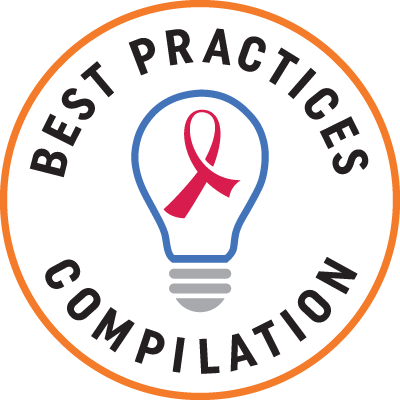Peer Programs
On
Peers in HIV care are specially-trained individuals who serve on the health care team to provide patients with information, support, and assistance in navigating services. HIV peers are often living with HIV, but not always. Their qualifications and roles rest on their connection with the community they serve. Peer programs serve to recruit, train, and support peers so that they can carry out their duties.
Best Practices
- Center for Innovation and Engagement
- Boston University School of Social Work Center for Innovation in Social Work and Health
- AIDS Action Foundation
- IHIP
- IHIP
Technical Assistance
- SPNS project evaluating interventions that seek to improve the well-being of RWHAP clients 50 and older. Project period: 2022-2025.
- Design, implementation, and evaluation of bundled evidence–informed interventions for Black women with HIV. Project period: 2020-2024.
- Support for leadership development and enhancement of meaningful engagement for people with HIV in health care planning and programs, inclusive of RWHAP-funded organizations. Project period: 2024-2028.
 Initiative documenting best practice strategies and interventions that have been shown to improve HIV outcomes in a "real world" setting and can be replicated by other programs. Project period: 2021-2024.
Initiative documenting best practice strategies and interventions that have been shown to improve HIV outcomes in a "real world" setting and can be replicated by other programs. Project period: 2021-2024.